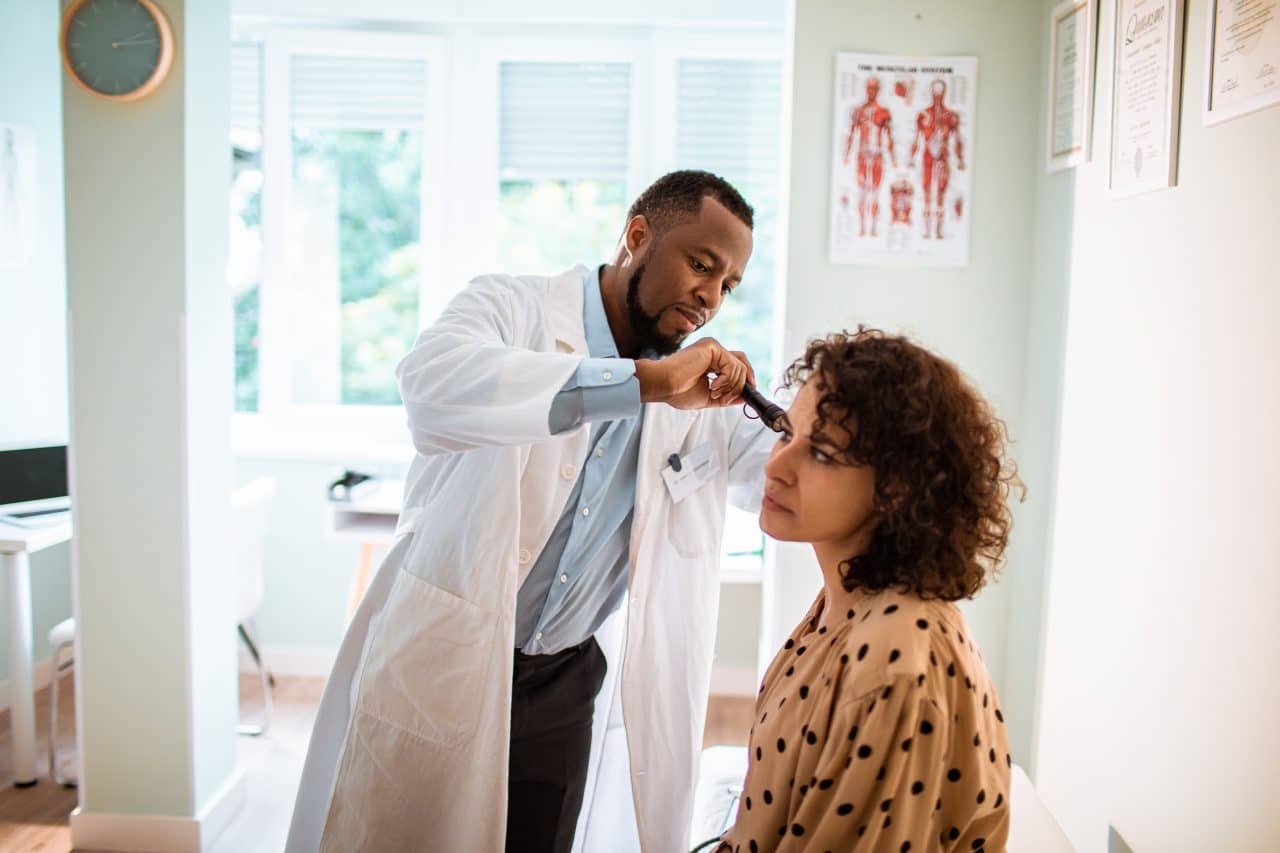Have you ever woken up in the morning unable to hear, or felt your hearing deteriorate over the course of a day or two? If so, you suffered from sudden hearing loss. While sudden hearing loss can be scary, there are treatment options available. Below we review what sudden hearing loss is, what causes it, how it is diagnosed and how it is treated.
What Is Sudden Hearing Loss?

Sudden sensorineural hearing loss (SSNHL), also known as sudden deafness, describes a rapid, unexplainable loss of hearing all at once or over the course of a few days. In most cases, only one ear is affected.
Usually in the case of SSNHL, people wake up in the morning suddenly unable to hear. Others notice it when they try to listen to music through a single earbud or try talking on the phone. Some may notice a loud “popping” sound before their hearing disappears.
It’s also common to experience other auditory symptoms such as a feeling of fullness in the ear, dizziness or tinnitus (ringing in the ears).
What Causes Sudden Hearing Loss?
SSNHL occurs when there is something wrong with the sensory organs of the inner ear. There are many reasons sudden hearing loss can occur, including:
- Ear infections.
- Head trauma.
- Autoimmune disease.
- Certain medications.
- Blood circulation problems.
- Neurological disorders.
- Meniere’s disease.
Many of the conditions above entail other symptoms that can point to what is going on. However, the cause of SSNHL is only uncovered in about 10% of cases.
How Is Sudden Hearing Loss Diagnosed?
First, an audiologist will rule our conductive hearing loss, which is hearing loss caused by an obstruction in the ear.
Then, to confirm the sensorineural hearing loss, a pure tone audiometry test will be performed. For this test, the doctor will measure how loud sounds of various frequencies have to be in order for you to hear them. If you cannot hear sounds below 30 dB in three connected frequency ranges within a 72-hour period, you’ll be diagnosed with SSNHL.
How Is Sudden Hearing Loss Treated?
Corticosteroids are the most common treatment for SSNHL, as they reduce inflammation, decrease swelling and help the body fight illness. Steroids must be administered as quickly as possible in order to produce the best outcomes.
If steroids are not effective and the underlying cause cannot be addressed, hearing aids are the next best option for treating sudden sensorineural hearing loss. In order to regain your hearing so you can continue to enjoy shows at Chelmsford Center for The Arts, call the hearing experts at Chelmsford Hearing Group if you experience a sudden loss of hearing.